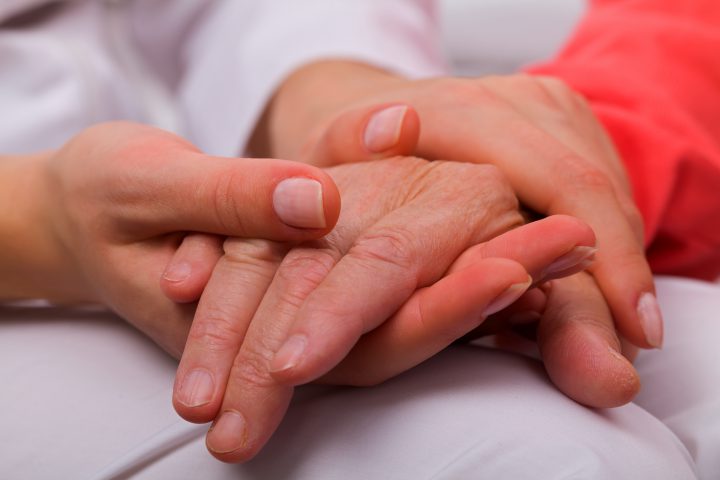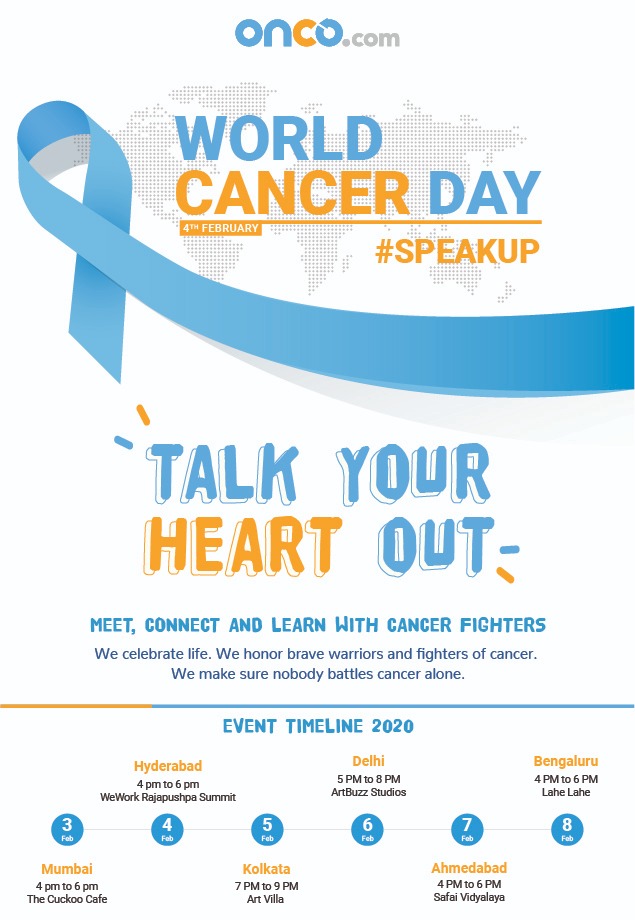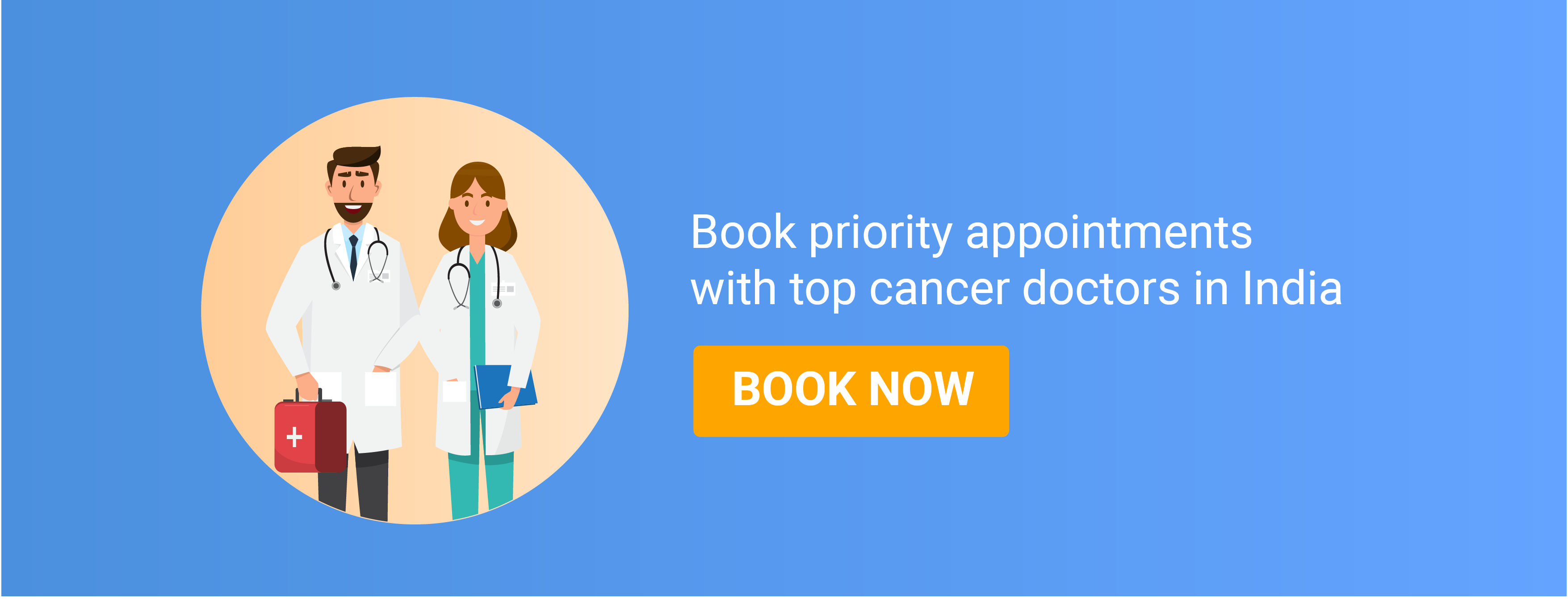When you are living with cancer or taking care of someone who has cancer, knowledge is power. Right knowledge at the right time is a plan well executed. “Being prepared” can give us a clear sight of what to expect during each phase, and help us, as well as our loved ones, stay strong, confident and supportive throughout one’s cancer journey.
 Let’s start this 2020, knowing about self-care and caregiving, making this year as efficient as it can be.
Let’s start this 2020, knowing about self-care and caregiving, making this year as efficient as it can be.
Self-care for cancer
Cancer self-care isn’t an often discussed topic, but a very important part of your physical and mental well-being, health and recovery. Here are some simple yet worthwhile tasks you can follow daily to keep yourselves strong and healthy throughout your journey.
Follow a good, balanced diet
“A healthy outside starts from inside” – As this popular quote by famed American actor Robert Urich goes, the most important part in maintaining good health is through balanced food and nutrition.
We need to ensure our diet comprises adequate sources of protein, fats, minerals, vitamins, and carbohydrates for our body to be able to function well. Any imbalance can affect the normal functioning of the body and that can cost dearly in stressful times of treatment. Lack of proper nutrition can make it difficult for you to sustain treatment for the required duration.
Fresh fruits and vegetables are rich in antioxidants, minerals, vitamins and dietary fibre. Lean proteins like fish (white-fleshed), plain greek yogurt, beans and lentils, egg-white are a good source of high quality protein. Low fat milk and cottage cheese are decent sources of favourable fats. They also can help you manage side-effects, strengthen your appetite, and can lower your risk of infections. Always remember to wash your vegetables and fruits before consuming, and stick to pasteurised products.
Do not hesitate to consult a professional dietician or nutritionist for a personalised diet plan. It will go a long way to help you maintain a healthy state of nutrition for your body.
Drink plenty of water and keep yourselves hydrated
When your body doesn’t receive sufficient fluids, the cells struggle to function the way they should. Drinking about 2/3 litres of water a day can help to keep your body’s minerals in balance. Higher amounts of water may be needed to cope with side effects like diarrhea and vomiting that can easily dry you out.
Regular exercising
It can help boost your mood and stay strong. The Clinical Oncology Society of Australia (COSA) advises that exercise should be embedded as a standard practise in cancer care, and should be viewed as a support therapy that counteracts the adverse effects of cancer and its treatment.
COSA also recommends patients to avoid a sedentary lifestyle and be physically active (when they can) with:
- 150 minutes of moderate intensity or 75 minutes of vigorous intensity aerobic exercises like walking, jogging, cycling and swimming each week.
- Resistance building activities like lifting weights targeting major muscle groups
NOTE: It is advisable to discuss with your doctor before starting on any intense exercise.
However, if you are new to exercising, it is imperative to know what you can withstand and talk to your medical specialist on:
- Evaluating your health conditions, abilities and disease trajectories
- Devising a personalised exercise plan (frequency and intensity levels), according to the above evaluations
On a brighter note, a comprehensive analysis that involved over 1,000 participants (with advanced stage leukaemia, lymphoma, multiple myeloma, lung, breast, GI, and prostate cancers), an exercise programme during their treatment phase significantly improved their physical and psychological functions, energy levels, sleep quality and overall quality of life.
Taking ample rest
Exercising is good, but do not overdo it. Listen to your body, and take enough breaks if you feel you need one. Ample rest is very essential in maintaining good physical and emotional health.
If you face any difficulties in getting enough sleep, get in touch with your doctor who may recommend a few relaxation activities, therapy or even medications.
Personal hygiene
Following simple things like keeping yourselves groomed can help you feel more like yourself. Also, practising self-hygiene is an important part of your health, and can lift your spirits up.
Prepare yourself for the side-effects
Knowing the typical side effects to expect during and post treatment can help you gain a sense of control on what’s happening with your body. Self assessment can also help you plan and stay ready for what’s ahead.
You can learn about the side effects of different treatments and tips to manage them through onco.com’s resource room.
Find your stress-buster
Find out things that can help you relieve your stress. The fewer your worries are, the greater will be your emotional strength and the better your body can battle cancer.
- Turn your speakers on and tune in to your favourite music. Music helps lift your mood and can even help manage side effects such as nausea, vomiting, and pain
- Calm your senses with a massage or a relaxation session. Practices like meditation, mild yogic exercises, acupuncture sessions, and aromatherapy sessions can also help you manage your stress
Few activities like massage and acupuncture sessions aren’t for everyone. Hence, it is recommended to consult a professional therapist, and know what suits you best according to your body conditions.
Spend time with your family and friends
Spending time with your loved ones, family and friends can have a positive impact on the patients’ health and treatment outcomes as has been reported in several studies. It is not wise to recuse yourself from your family and social life as it can lead to a negative impact on your health.
Brace-up and face your finances
Cancer care and treatment may be costlier than you expected. It is, therefore, healthy to learn as much as you can before starting to undergo treatment. You can have these questions in mind when planning financially for cancer treatment:
- How much will my primary treatment and drugs cost?
- What are all the treatments will I require to complete treating my cancer and how long will it last?
- Eyeing the possibility of additional, supportive treatments, what would those be, and how to plan for them?
- What are my options for additional financial support and insurance, and how should I plan ahead to avail them?
- Are there any other options like support programs in my area? How do I avail them? (Online research and visiting a cancer centre may be a good option to research on these)
- Is my cancer likely to recur? In case of recurrence, how can I plan ahead?
It is better to consult your oncologist, and a financial counsellor with these questions in mind. If you feel you need to know alternate and other viable treatment options and wish to receive a second opinion, you can connect with us.
Talk it out
It is time for us to break the stigma and stereotypes that say “cancer cannot be spoken loud”. Opening about your condition and speaking what you feel with your family, friends or your close circle can ease you up and drive confidence. Apart from our self-care, external caregiving also plays a very vital role in managing cancer.
Also, connecting with offline or online support groups can also help, as you will start interacting with people who are undergoing/have undergone a similar journey. Getting in touch and speaking with other people who have cancer can give you a safe place to share and help you realise you are not alone in this fight.
One such support group is TYHO (Talk Your Heart Out), where patients and caregivers get together in sharing their experiences, discussing the ups and downs when managing their cancer journey. You can follow Onco.com’s Facebook page, to get information and updates on TYHO’s upcoming events.
In support to World Cancer Day that fell on February 4, 2020, Onco.com is organising its TYHO events in six different cities across India until February 8, 2020. You can find the details in the image below.

Caregiving
As the name goes, “cancer” is among the most dangerous diseases, and innumerable amounts of research and investments are pouring upon to find a cure for the disease. Cancer is the second leading cause of death globally, and responsible for around 9.6 million deaths in 2018 according to WHO estimates.
Self-care is, of course, the key in managing your cancer, but citing the complexity of the disease, it is often common for patients to undergo a breakdown, both physically and mentally.
Who is a caregiver?
A caregiver is a person who often helps the patient in managing their cancer journey and is not paid to do so.
More often, a caregiver will be the patient’s spouse, partner, parents or an adult child. In their absence, friends, co-workers and another close circle may fill the role. An attentive and reliable caregiver support is very important for a patient to manage their physical and emotional well-being, and it can influence the patient’s successful recovery from the disease.
A caregiver may provide different kinds of support depending on the needs of the patient:
- Emotional support
- Assisting with medical care and related support
- Serving as a communicator between the patient and the health care team
- Helping with financial needs and legal issues
- Additional support like choosing between the right treatment options
How does it feel to be a caregiver?
Caregiving for cancer patients is as sensitive as it sounds. A caregiver should also be prepared emotionally and stay committed throughout the patient’s journey, with timely care and availability. Despite the worries for their loved ones and the sacrifices they have to make, many feel a sense of personal satisfaction in caring for that person.
Caregiving may sometimes be frustrating and stressful. Apart from the grief and emotional distress over their loved one’s illness, they also try to manage many difficult problems. During such times, they may also experience physical symptoms like tiredness, mental exhaustion and trouble sleeping.
Important information for caregivers
Caregivers are strongly advised to know the following information when they are dealing with patients and helping them manage their cancer journey.
Treatment options
It is important to know about the different types of cancer treatments available. This can help you decide the best option for the patient’s situation. Gathering enough resources and planning for your treatment may take time, and you should talk to the treating oncologist on how long you can wait until treatment starts.
Know in detail about the cancer types, stages and their treatment options
Managing treatment and side-effects (at home)
General caregiver guidelines:
- Be clear on the medication procedures and dosage in case the patient can’t do it
- Be careful when you are giving shots. Make sure you don’t stick yourself with the needles. And don’t put the cap on the used needles when throwing them away
- Keep the healthcare (cancer) team’s numbers and other emergency numbers handy, in cased you have any doubts or queries on the medication procedures
Caregivers should get in touch with the medical team, on one of the following occasions:
- The dosage period is over and medicines require a refill
- The patient spills, misses or vomits a dose
- You notice redness, swelling or pain at the injection site
- There is a fever (higher than 100.5 degrees Fahrenheit) when taking medicines orally
- The patient has unusual side effects that weren’t pre-informed of, or allergic reactions to medicines (emergency)
Palliative care for cancer
Palliative care focuses on improving the quality of life of a patient suffering from a terminal illness, such as cancer. They may receive palliative care from the point of diagnosis to throughout and post treatment. It is hence important to talk to your consulting oncologist/medical specialist to know if the patient needs any additional care, depending on the severity (or anticipated severity) of the condition.
How to communicate with someone with cancer?
A subtle and positive tone of communication is very important as their emotions tend to fluctuate often. Few tips you can follow when communicating:
- Let the patients know you want to be there for them, and they are not alone
- Respect your needs, desires, and feelings, and be equally sensitive to those of the patient
- Focus on the present rather than speaking of memories. Though you might not intentionally hurt, they might deviate
- Be open minded and speak more about you rather than speaking about them
Coping up tips for caregivers
The occurrence of cancer is sudden, and you will be asked to care for the patient with no pre-thought plans in mind. You will also be needed to help make decisions about treatment and medical care. When caring for your loved one, you may also have to deal with various emotions like fear, helplessness, confusion, guilt, anger that may affect your mental health too. Here are some tips to help you stay composed when hoping for a healthy recovery:
Overcoming depression
Being a caregiver can take a toll on individuals and depression is one common symptom among caregivers. Early attention must be given to the symptoms of depression (especially when you lose control of emotions), as it influences how a caregiver feels about his/her role. Caregiver’s strength directly impacts the patients they take care of, so you should ensure you are able to take adequate care of yourself.
Here are some steps you can take to reduce stress, and get back into your role with your energy back:
- Ask for additional support from family and friends to take care of the patients. This way, the patient also feels less lonely and gains confidence.
- Exercising regularly can help you cope with both mental and physical well being.
- Spiritual support like meditation
- Taking some time for recreation, with your social circle
- Request help from a trained mental health professional
Take a break for yourself
Most hesitate to take a break from their caregiving responsibilities with concerns on their loved ones. But, no one can continuously be a caregiver 24 hours a day, throughout the year. Taking some time for yourself, like a short walk daily could also help.
If you can’t leave the patient alone, or don’t have friends or family to relieve you, you may ask for respite care. A respite caregiver is someone who temporarily takes care of the patients in the absence of a primary caregiver.
Knowing what you can do
If you feel an outside assistance or a professional help may do better in some instances, do not hesitate to contact them. Especially when you are unsure about the dosage or procedure of the medications.
Include things you enjoy in the routine
You can include activities that boost up your mood in your routine, like going on a lunch with close friends, taking up a task and accomplishing, and relaxing activities such as watching movies or taking a walk.
Get professional help if you think you need it, and do not stretch yourself before you seek such help.
A message from Onco.com
Knowing about cancer is as important as treating it. Let us make ourselves aware and stay updated about different types of cancer, its causes, symptoms, prevention, screening, diagnosis and treatment options. Self-awareness can not only help us to swiftly react when we notice any signs or better manage the cancer journey, but also can help our loved ones stay safe.
Stay updated – know about different types of cancer, ways to manage them and more.
If you are seeking guidance to best manage your or your loved one’s cancer journey, Onco.com’s panel of care managers and medical experts can show you the right way. Get in touch with us.



